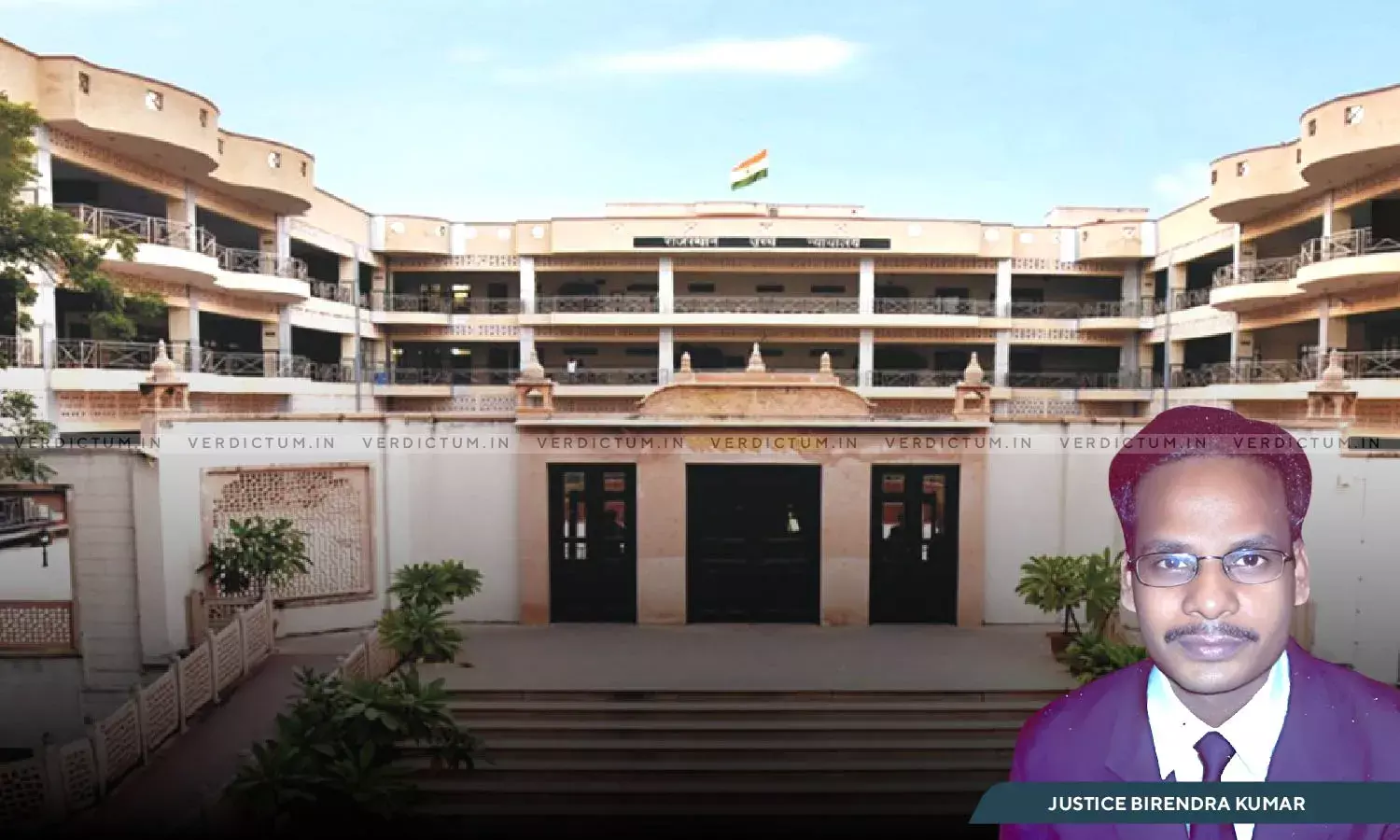Mosque Falls Under Definition Of 'Waqf', Disputes Must Be Adjudicated By Waqf Tribunal: Rajasthan High Court
The case revolved around a dispute regarding the Madina Zama Masjid, with the petitioners (defendants) claiming rightful title over the mosque property.

The Rajasthan High Court ruled that a mosque, being a place used for religious purposes such as prayer (Namaz), falls under the definition of "Waqf" as outlined in Section 3(r) of the Waqf Act, 1995. Consequently, any disputes related to it must be adjudicated exclusively by a Waqf Tribunal, and civil courts do not have jurisdiction in such matters.
The Court emphasized this point while referring to Section 85 of the Waqf Act, which bars civil and revenue courts from hearing cases involving waqf properties, mandating that such issues be determined by a Waqf Tribunal.
The case revolved around a dispute regarding the Madina Zama Masjid, with the petitioners (defendants) claiming rightful title over the mosque property. The original plaintiffs (respondents) sought a permanent injunction to prevent the defendants from disturbing the use of the mosque by the Muslim community for religious activities such as Namaz.
A Bench of Justice Birendra Kumar held, “It is not disputed that Masjid is a place used for religious purpose for praying Namaz etc., therefore, it comes within the definition of 'Waqf' and once the suit property is Waqf, any dispute in respect of the Waqf property is to be adjudicated by the Waqf Tribunal only and not by any other court including civil court in view of the bar under Section 85 of the Waqf Act.”
Advocate Roshan Lal represented the petitioners, while Advocate Moti Singh appeared for the respondents.
The petitioners contended that the case should be heard by a Waqf Tribunal, given that it concerned a waqf property, not a civil court. However, the civil court rejected their plea under Order VII Rule 11 CPC, arguing that the mosque was not listed as a waqf property in the register, and thus, the jurisdiction of civil courts was not barred.
Upon reviewing the issue, the Rajasthan High Court disagreed with the lower court’s decision. It clarified that a mosque, once dedicated for religious purposes, qualifies as a waqf under Muslim law, regardless of whether it is formally registered as such. The court concluded that any dispute concerning a waqf property must be taken up with the Waqf Tribunal, as per the provisions of the Waqf Act.
The High Court allowed the civil revision petition, stating that the civil court had overstepped its jurisdiction. The bench directed that the plaint be rejected under Order VII Rule 11(d) CPC and provided the plaintiffs with the opportunity to approach the Waqf Tribunal within four weeks to resolve the matter.
Cause Title: Shakur Shah & Anr. v. Eliyas & Ors., [2025:RJ-JD:10292]


